Faculty

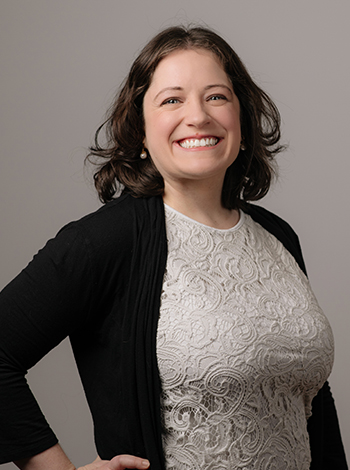
Education
Fellowships, Residencies, and Visiting Engagements
Licensures and Certifications
Honors and Recognition
Professional Memberships
Selected Presentations
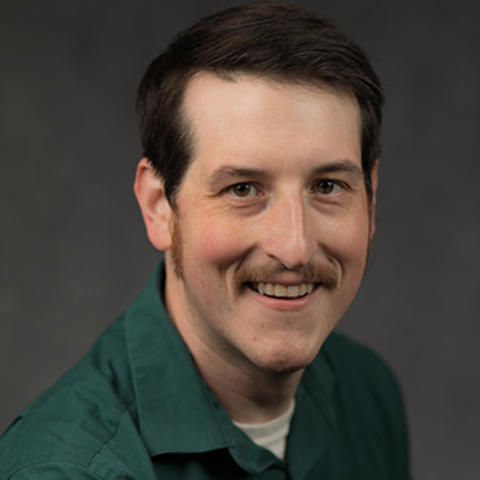
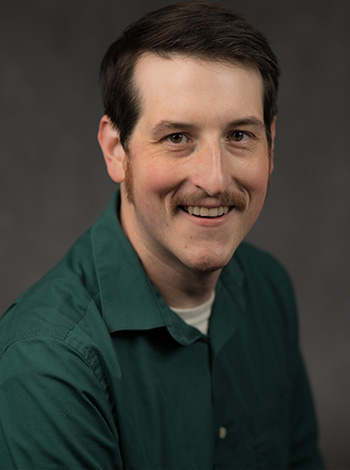
Bio
I completed a B.S. in Brain, Behavior, and Cognitive Science at the University of Michigan, where I conducted an honors thesis using functional MRI to study word list learning with Dr. Scott A. Langenecker. I completed my Ph.D. in Neuroscience at the University of Minnesota with Dr. Cheryl A. Olman. My doctoral work used functional MRI and behavioral psychophysics to examine how early visual processing (e.g., contrast perception) is affected by psychosis. Next, I worked as a post-doctoral research associate with Dr. Scott O. Murray in the Department of Psychology at the University of Washington. My work examined how low-level vision (e.g. motion perception) is affected by autism spectrum disorders, using methods such as functional MRI, MR spectroscopy, and EEG.
I am an Assistant Professor in the Department of Psychiatry & Behavioral Sciences. My research focuses on understanding how visual perception is affected by different psychiatric and neurological conditions. I am the Primary Investigator for an NIMH K01-funded study using EEG and MR spectroscopy to understand early visual perception in schizophrenia. I am also involved in a number of other projects focused on visual perception in clinical populations including psychosis spectrum disorders and visual snow syndrome. Within the department, I am Co-Chair of the Grand Rounds Committee, the Chairperson of a Junior Faculty Peer Mentorship Group, and Co-Director of the Ambulatory Research Center Psychophysiology Laboratory.
Expertise
- Schizophrenia
Administrative Assistant
(for academic support only)
Teneshia Collins
coll1148@umn.edu
Research Summary
Dr. Schallmo's interests include: Disrupted perception in psychosis and autism spectrum disorders (ASD) The role of different neurotransmitters (e.g., GABA, glutamate) in psychosis and ASD Visual neuroscience as a tool to examine specific hypotheses about the neural mechanisms of psychiatric disorders Combining methods (e.g., functional MRI, EEG, MR spectroscopy, visual psychophysics, pharmacology) to study a single research question in human subjects
Education
Honors and Recognition
Professional Memberships
Selected Publications
Selected Presentations
Contact
Address
Department of Psychiatry & Behavioral Sciences, F282/2A West Building, 2450 Riverside Avenue South, Minneapolis, MN 55454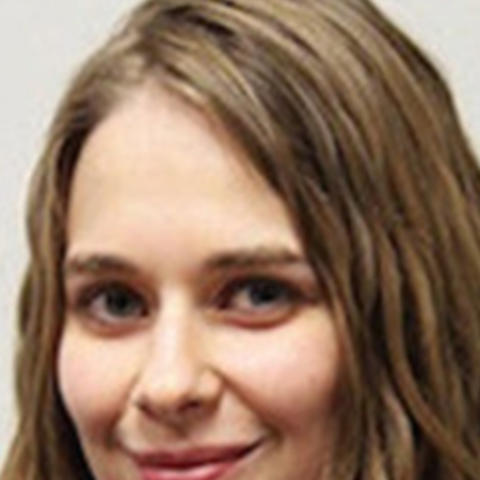
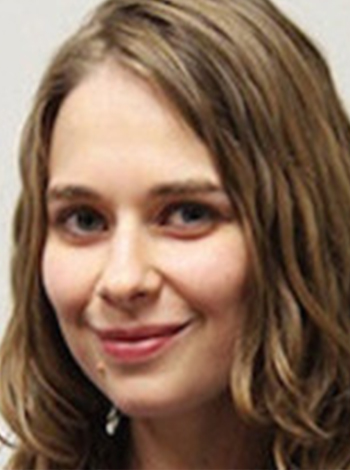
Bio
I received my BA from the University of Chicago. I completed medical school here at the University of Minnesota. I completed my psychiatry residency in general psychiatry from the University of Iowa Hospitals and Clinics, and my fellowship in child and adolescent psychiatry from Boston Children's Hospital (Harvard Medical School), Boston, where I was Chief Fellow. I am a child and adolescent psychiatrist with a focus on consultation-liaison psychiatry, mood and anxiety disorders, and developing new clinical programs for children with coexisting physical and psychiatric illnesses. Within the department, I am a member of the Advocacy Committee.
Administrative Assistant
(for academic support only)
Shelly Slominski
slomi001@umn.edu
In the Media
- 2022: Featured in this article titled, "Interprofessional collaboration at the U aims to improve mental health treatment for children and adolescents".
Education
Fellowships, Residencies, and Visiting Engagements
Licensures and Certifications
Honors and Recognition
Professional Memberships
Selected Publications
Selected Presentations
Contact
Address
Masonic Institute for the Developing Brain, 2025 E River Pkwy, Minneapolis, MN 55414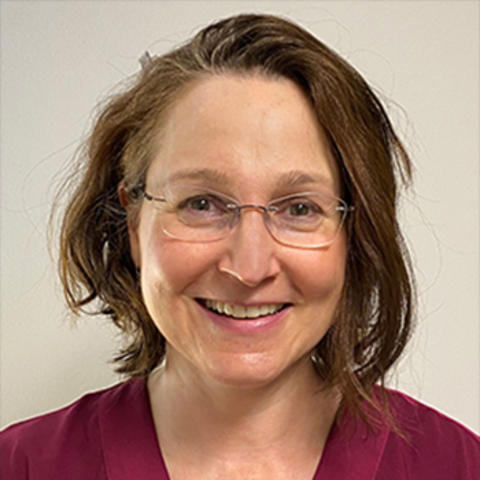
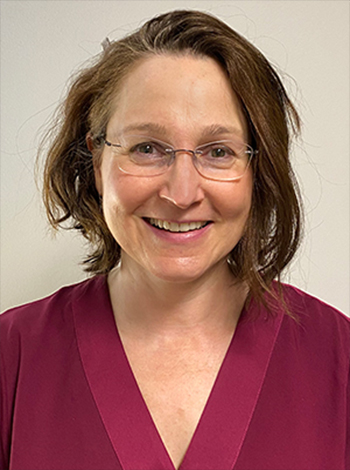
Bio
I am a Clinical Psychologist on faculty in the Department of Psychiatry and Behavioral Sciences and adjunct faculty in the Department of Psychology at the University of Minnesota. My education includes a Master’s degree in cognitive psychology from the Universität Regensburg, Germany, a PhD in clinical science from Vanderbilt University, TN, and a postdoctoral fellowship at the University of Pennsylvania & the A.T. Beck Institute, PA. Prior to joining the University of Minnesota, I worked in a variety of healthcare settings including the University of Illinois - Chicago, the practice group RICBT & OneCBT, and Allina Health.
In the Department of Psychiatry and Behavioral Sciences, I direct Psychology Education, co-chair the Education Council, oversee clinical psychology training, and direct CBT training for the psychiatry residency program. My education mission centers around empirically-validated team-based patient care, interprofessional learning, and mentorship of trainees across disciplines. I also serve as a certified Crucial Conversations Trainer leading workshops on the art of holding critical conversations well.
Expertise
- Unipolar and bipolar mood disorders
- Multidisciplinary interventions for mood disorders
- Cognitive Behavioral Therapy (CBT)
Administrative Assistant
(for academic support only)
Molly Jokimaki
jokim004@umn.edu
In the Media
- 2023: Quoted in this Minnesota Daily article titled, “Fareed: The loneliness epidemic: a silent crisis.”
- 2023: Featured in this article titled, “Celebrating the many ways that psychologists help us.”
- 2023: Featured in this Minnesota Daily article titled, “Could the Sunshine Protection Act prevent the winter blues?
- 2022: Featured in this Woman’s World article titled, “Expert Advice: How Can I Feel Less Lonely During the Holidays?
- 2022: Featured in this article titled, “Treating seasonal affective disorder as winter looms.
- 2022: Quoted in this Consumer Reports article titled, "Find the Right Therapist for You".
- 2022: Featured in this Detroit Lakes Tribune article titled, "Health Fusion: Don't let SAD drive your bus".
- 2021: Helps us get through the winter blues in this Medical School video titled, "Ask a U of M Expert: Tips for coping with SAD".
- 2021: Featured in this article titled, "5 Tips for Choosing a Psychotherapist".
- 2020: Interviewed by WCCO radio in a piece titled, Mental health experts warn that the holiday season could be "the hardest part" of the pandemic, by KSTP TV, Expert offers tips for those experiencing loneliness during the pandemic, holidays, and by Fox21, Mental Health Experts Concerned About Loneliness This Holiday Season.
Research Summary
As a scientist-practitioner, I dedicate my career to translating scientific research into best practices in mental healthcare. My research interest is in the development and implementation of evidence-based interventions for mood disorders, specifically the integration of Cognitive Behavioral Therapy (CBT) with emerging biological interventions. Currently, I serve as site PI for a PCORI-funded empirical study comparing novel depression interventions.
Teaching Summary
I am passionate about training, teaching, and mentoring psychology graduate students, psychiatry residents, postdoctoral fellows, and junior faculty in the evaluation and evidence based team-based intervention for mood disorders and in professional development.
Clinical Summary
I am clinically licensed in Minnesota and certified in CBT by the Academy of Cognitive and Behavioral Therapies. I provide care and consultation in multidisciplinary specialty clinics for Treatment Resistant Depression (TRD) and Early-Stage Mood Disorders (ESMD). My clinical practice is rooted in scientific research and integrates CBT with modern empirically- based approaches including Behavioral Activation (BA) and Acceptance and Commitment Therapy (ACT).
Education
Fellowships, Residencies, and Visiting Engagements
Licensures and Certifications
Honors and Recognition
Professional Memberships
Languages
Selected Publications
Selected Presentations
Contact
Address
Department of Psychiatry & Behavioral Sciences, F282/2A West Building, 2450 Riverside Avenue South, Minneapolis, MN 55454

Bio
I am an Assistant Professor in the Department of Psychiatry & Behavioral Sciences, Child and Adolescent Mental Health Division, and Masonic Institute for the Developing Brain, as well as an Institute for Translational Neuroscience Scholar. I earned my PhD (Clinical Psychology) from the University of Pittsburgh, with secondary training from Carnegie Mellon University (Cognitive Neuroscience), focusing on the intersection of developmental cognitive neuroscience, mental health research, and computational methods. I trained at Massachusetts General Hospital/Harvard Medical School for my predoctoral clinical internship and postdoctoral fellowship, with an emphasis on research and treatment of adolescents with substance use disorders.
Research in my lab aims to understand normative brain development and the emergence of mental health and substance use disorders during adolescence, integrating techniques from developmental cognitive neuroscience, computational methods, and psychopathology research. We are also engaged in methodological work aiming to evaluate and improve the reproducibility and ultimately, clinical and policy utility, of large-scale fMRI and behavioral assessment research in neurodevelopmental studies.
Administrative Assistant
(for academic support only)
Shelly Slominski
slomi001@umn.edu
In the Media
- 2024: Research featured in this New York Times article, titled, “Teen Drug and Alcohol Use Linked to Mental Health Distress.”
- 2024: Featured in this Medical School article titled, “High school students who report using alcohol, cannabis or nicotine at higher risk for suicidal thoughts and other mental health disorders”
- 2023: Featured in this article titled, "Is Your 18-Year-Old Really 'Mature'? New Brain Study Has Answers".
- 2023: The focus of this article titled, “Integrating his clinical work into his research an exciting prospect for new faculty member.”
- 2022: Invited on the Flux Society [Developmental Cognitive Neuroscience]: Sensitive Periods Podcast.
- 2022: Invited on the Organization for Human Brain Mapping (OHBM) Neurosalience Podcast
- 2022: Featured on KCBS, San Francisco. Click here for more information.
- 2022: Research featured on Psychology Today, Click here for the article.
- 2021: Featured on WHYY, National Public Radio (NPR)-Affiliate, Philadelphia, Click here for more information.
Education
Fellowships, Residencies, and Visiting Engagements
Honors and Recognition
Professional Memberships
Selected Publications
Contact
Address
Department of Psychiatry & Behavioral Sciences, F282/2A West Building, 2450 Riverside Avenue South, Minneapolis, MN 55454

Bio
I received my BA in chemistry from the College of St.Catherine, MN, and completed medical school here at the University of Minnesota. I completed my residency in family practice from the University of Wisconsin, a residency in psychiatry, and a fellowship in addiction medicine from the University of Minnesota. I am an Associate Professor and addiction psychiatrist in the Department of Psychiatry & Behavioral Sciences. I am Program Director for the Addiction Medicine Fellowship which trains physicians of all specialties in addiction and co-occurring psychiatric disorders.
My research interests include substance abuse and related compulsive behaviors with co-morbid conditions, especially in women; medication development for substances of abuse, and healthcare professionals with substance user psychiatric disorders. I am also a co-investigator on the use of neuroimaging approaches to identify circuit abnormalities in addiction. Pharmacotherapies for the treatment of cocaine use disorder have also been a focus of research. I have also given grand rounds presentations nationwide and have presented both nationally and internationally at more than 70 conferences. I am board certified in both family practice and psychiatry and certified by the American Society of Addiction Medicine as a physician specialist in substance abuse and by the American Board of Psychiatry in addiction psychiatry. I was selected as a Top Doctor in Minneapolis-St. Paul Magazine in 2014, 2016, 2017, 2018, 2019, and 2021.
Expertise
- Eating disorders
- Substance use disorders
- Addictive disorders
Administrative Assistant
(for academic support only)
Natasha Hampton-Anderson
nhampton@umn.edu
In the Media
- 2023: Featured in this article titled, “Celebrating the many ways that psychologists help us”.
- 2022: Shares her expertise in this Medical School article titled, “Talking addiction during the holidays with U of M”.
- 2022: The focus of this article titled, “Trip to Africa teaches faculty member about the impact of culture on mental health and substance abuse”.
- 2022: Featured in this Faribault Daily News article titled, “University of Minnesota expert explains Dry January”.
- 2021: Interviewed for this article in Self Magazine titled, “6 Signs Your Relationship with Alcohol May Not be Healthy”.
Research Summary
Dr. Specker's research is focused around substance abuse and related compulsive behaviors with co-morbid conditions, especially in women; medication development for substances of abuse; and Health Care Professionals with substance user psychiatric disorders.
Education
Fellowships, Residencies, and Visiting Engagements
Licensures and Certifications
Honors and Recognition
Professional Memberships
Selected Publications
Selected Presentations
Contact
Address
Department of Psychiatry & Behavioral Sciences, F282/2A West Building, 2450 Riverside Avenue South, Minneapolis, MN 55454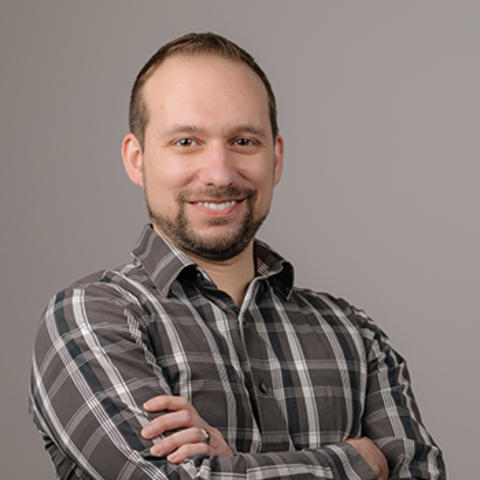
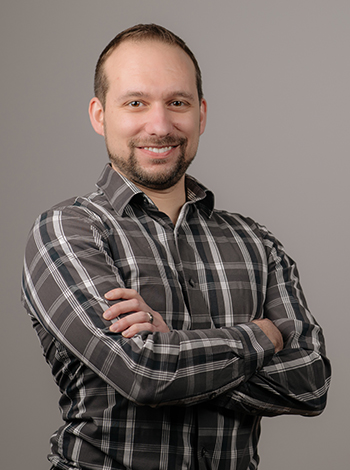
Bio
I received my BS in psychology and neurobiology from the University of Wisconsin. I completed medical school and a Psychiatry residency at the University of Minnesota Medical School. I am an adult outpatient psychiatrist with a clinical focus on integrated/collaborative care, which involves working closely with colleagues in primary care to help provide mental health care to a vastly greater number of patients than is possible with a conventional outpatient psychiatry practice. I believe that the integration of behavioral health with primary care is key to improving access and is the future of effective mental health treatment.
Aside from my work with patients, I enjoy working in clinical informatics. I am a certified physician builder and power user with Epic, helping to make improvements to the electronic medical record to streamline the experience for both providers and patients and reduce burnout among providers. I am also passionate about education and work closely with medical students and residents in psychiatry as well as primary care specialties to help them improve their clinical skills and provide excellent patient-centered mental health care.
Expertise
- Development of clinical care models in Integrated/collaborative care areas
- Clinical informatics and resident education
- Certifications to optimize electronic medical records in the interest of reducing burnout among providers
Administrative Assistant
(for academic support only)
Natasha Hampton-Anderson
nhampton@umn.edu
In the Media
- 2023: Featured in this article titled, "Clinic director and educator believes the best time to mentor is 'in the moment'".
Education
Fellowships, Residencies, and Visiting Engagements
Licensures and Certifications
Honors and Recognition
Selected Publications
Selected Presentations
Contact
Address
Department of Psychiatry & Behavioral Sciences, F282/2A West Building, 2450 Riverside Avenue South, Minneapolis, MN 55454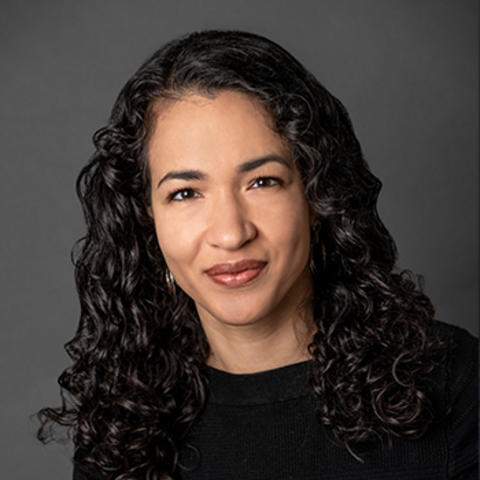
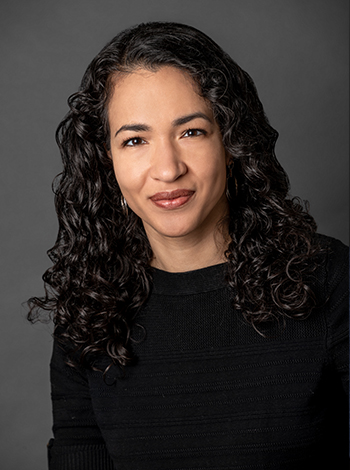
Bio
I am a licensed child and adolescent psychologist and assistant professor at the University of Minnesota Medical School in the Department of Psychiatry & Behavioral Sciences. I attended Stanford University for undergrad and received my PhD at the University of Minnesota's Institute of Child Development. In my current faculty position, I balance direct clinical care of children and families, and teaching/supervision of advanced graduate psychology students. I specialize in evidence-based treatment of children and adolescents with acute and complex trauma. I am committed to providing culturally-affirming care to diverse patients and families including racially/ethnically diverse individuals, members of the LGBTQ+ community, and other historically marginalized groups.
Expertise
- Trauma-focused cognitive behavioral therapy (TF-CBT)
- Evidence-based treatment of children and adolescents with acute and complex trauma
- Cognitive Behavioral Therapy (CBT)
- Prolonged exposure (PE)
- Parent guidance
Administrative Assistant
(for academic support only)
Natasha Hampton-Anderson
nhampton@umn.edu
Research Summary
Dr. Vrieze is broadly interested in developmental psychopathology, namely the myriad biological and environmental factors that contribute to the onset and trajectory of mental health problems in young children. Her research has focused on attachment and the reflective capacity of depressed mothers to attune to the emotional needs of their young children. She is interested in the development of community-based interventions for younger children identified as at-risk for developing emotional-behavioral problems.
Teaching Summary
Dr. Vrieze provides training and supervision for Psychiatry residents, Child Psychiatry Fellows, psychology interns and graduate students on the topics of: developmental psychopathology, cognitive behavioral therapy, trauma, and early childhood mental health. She supervises the clinical work of graduate students from counseling, school, and clinical psychology doctoral programs.
Clinical Summary
Dr. Vrieze is a licensed clinical psychologist in the State of Minnesota. She earned her PhD in Child Psychology through the Developmental Psychopathology and Clinical Sciences doctoral program at the University of Minnesota - Institute of Child Development. She completed both her predoctoral internship and postdoctoral clinical fellowship training at Children's Hospital in the Twin Cities.
She focuses on trauma (acute, complex), chronic stress, and adjustment to significant stressors and adversities. Dr. Vrieze works with children, adolescents, young adults, and families utilizing evidence-based approaches including cognitive behavioral therapy (CBT), trauma-focused cognitive behavioral therapy (TF-CBT), prolonged exposure therapy (PE), parent guidance, exposure-response prevention, and supportive psychotherapy.
Education
Fellowships, Residencies, and Visiting Engagements
Licensures and Certifications
Honors and Recognition
Professional Memberships
Selected Publications
Selected Presentations
Contact
Address
Masonic Institute for the Developing Brain, 2025 E River Pkwy, Minneapolis, MN 55414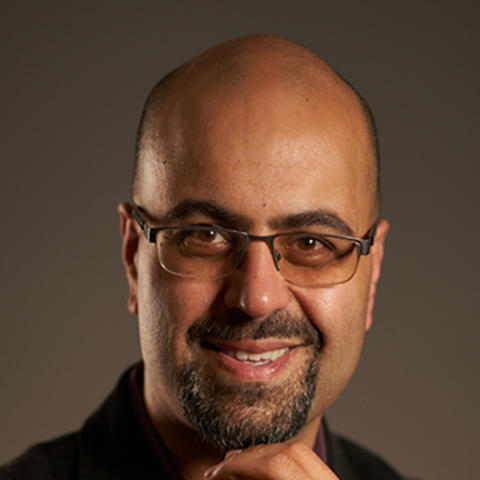
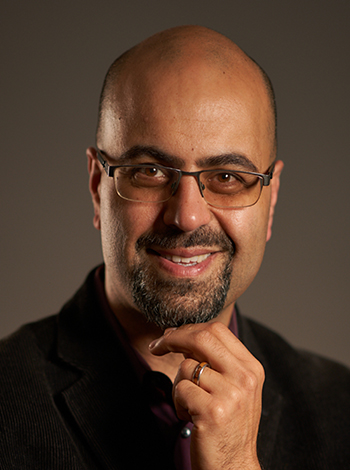
Bio
I am a psychiatrist and biomedical engineer. Clinically, I provide brain stimulation treatments for mood, anxiety, and substance disorders. These include deep brain stimulation, cortical stimulation, and transcranial magnetic stimulation.
My research focuses on developing these treatments further, particularly the creation of new "closed loop" devices. These devices sense brain signals in real-time and deliver energy in a planned and rational fashion, compensating for each patient's specific brain network abnormalities. My laboratory (TNE Lab) prototypes new stimulation paradigms and targets in rodent models, conducts clinical trials of these new technologies, and searches for biomarkers of illness and recovery to guide next-generation therapies.
To inquire about being part of our neurostimulation trials or about existing clinical treatments, please contact my clinical office at 952-525-4500.
Expertise
- Neuromodulation for mental illness
- OCD
Administrative Assistant
(for academic support only)
Natasha Hampton-Anderson
nhampton@umn.edu
In the Media
- 2023: Featured in this WCCO TV piece titled, “New research at U of M measures brain waves to detect depression, suicide warnings.”
- 2023: Featured in this StarTribune article titled, “University of Minnesota studies brain's electrical signals as warnings for depression, suicide,” and in this WCCO interview titled, “ Can brain signals indicate thoughts about suicide and severe depression?”
- 2023: Dr. Widge and his research team are featured in this article titled, “Can we do a better job of detecting suicidality? U of M team using a DARPA award to test the possibility.”
- 2022: Featured in a video titled "Tackling Psychiatric Illness Using Translational Models and Computations", shot as part of the American Psychiatric Association's Conference TV with funding from NeuroPRSMH (NeuroPlasticity Research in Support of Mental Health), the U’s multidisciplinary neuroscience research group
- 2022: Featured in this Psychiatric Times article titled, “Assessing Gaps and Opportunities in ECT, rTMS, and DBS Guidelines”.
- 2021: Spotlighted in The Medical Progress in a piece titled, “Merging AI with targeted electrical brain stimulation to improve specific human brain functions”.
- 2021: Interviewed for this MINNPOST piece titled, “As Minnesota considers qualifying anxiety for its medical cannabis program, psychiatrists raise concerns.
- U of M research team hopes to develop an implantable device to treat mental illness — thanks to a $6.6 million grant”. Features exciting work led by Dr. Alik Widge
Research Summary
Our laboratory develops new ways of modifying brain circuits to treat mental illness. We take a "dimensional" approach, breaking mental disorders into their core components that cut across diagnoses. We use a variety of tools, including electrical, magnetic, and optical stimulation, to change those circuits in a way we hope will translate to humans.
Education
Fellowships, Residencies, and Visiting Engagements
Licensures and Certifications
Honors and Recognition
Professional Memberships
Selected Publications
Selected Presentations
Contact
Address
Department of Psychiatry & Behavioral Sciences, F282/2A West Building, 2450 Riverside Avenue South, Minneapolis, MN 55454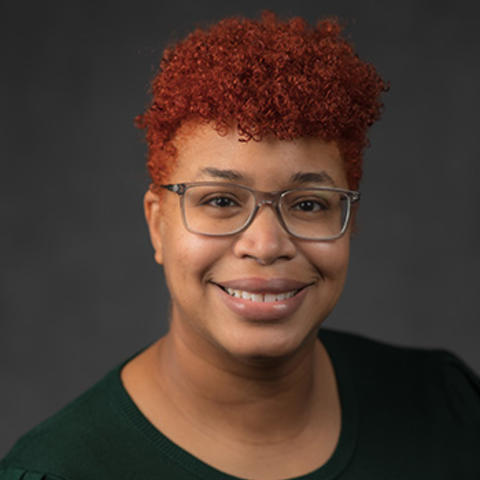
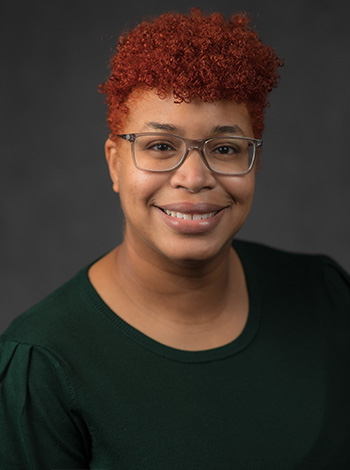
Bio
I received my BA from Cornell College, Iowa, and received my medical degree from Saint Louis University School of Medicine, Saint Louis, Missouri. I completed my residency in psychiatry at the University of California San Francisco – Fresno, California. I further completed my neuromodulation medicine fellowship here at the University of Minnesota, where I was its inaugural fellow. I am an adult psychiatrist with a focus on TMS. My unique interest in TMS is understanding TMS's mechanism in order to design optimal protocols and understand biomarkers for TMS clinical response to help make the best care decisions for patients.
Neuromodulation has been of interest to me since my work at a perinatal mental health clinic in California where I took care of women who were pregnant or had recently given birth who were always interested in the latest non-medication treatments. This really inspired me to become skilled to work with PTS who don't fully respond to medications. I provide and monitor neuromodulation techniques such as ECT, TMS, and VNS. Within the department, I am a member of the Diversity & Inclusion Committee.
Expertise
- ECT
- TMS
- VNS
Administrative Assistant
(for academic support only)
Shelly Slominski
slomi001@umn.edu
In the Media
- 2020: Interviewed by Minnesota Public Radio about seasonal affective disorder.
Education
Fellowships, Residencies, and Visiting Engagements
Licensures and Certifications
Honors and Recognition
Professional Memberships
Selected Publications
Contact
Address
Department of Psychiatry & Behavioral Sciences, F282/2A West Building, 2450 Riverside Avenue South, Minneapolis, MN 55454
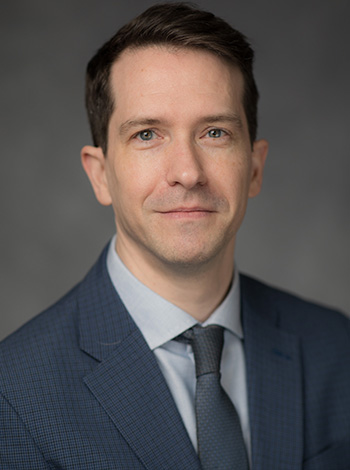
Bio
I am the Chief Clinical Psychologist for the Department of Psychiatry & Behavioral Sciences, and an Assistant Program Director in our psychiatry residency program. I am also a member of the Inclusive Excellence and Well-Being (IEWB) council. I earned my PhD in clinical psychology at Long Island University in Brooklyn, NY, and my BA at Brandeis University in Waltham, MA. I completed my predoctoral internship at NYU-Bellevue Hospital Center. Prior to joining the University of Minnesota Medical School, I was an Assistant Professor and Attending Psychologist at Albert Einstein College of Medicine/Montefiore Medical Center in the Bronx, NY.
I provide individual psychotherapy to adults at our Riverside location, and supervise trainees and clinicians in psychiatry, psychology, and social work. My clinical interests and experience are largely in cognitive behavioral and psychodynamic therapy. I am a co-investigator for research studies funded by the EPINET (Early Psychosis Intervention Network) project, an NIMH grant through Dr. Vinogradov's lab, and I provide program support and clinical consultation to our Strengths and NAVIGATE specialty teams for patients experiencing psychosis.
Expertise
- Psychotherapy
- Voice-hearing
- Existential angst
- Psychosis
Administrative Assistant
(for academic support only)
Molly Jokimaki
jokim004@umn.edu
Education
Fellowships, Residencies, and Visiting Engagements
Licensures and Certifications
Selected Publications
Selected Presentations
Contact
Address
Department of Psychiatry & Behavioral Sciences, F282/2A West Building, 2450 Riverside Avenue South, Minneapolis, MN 55454
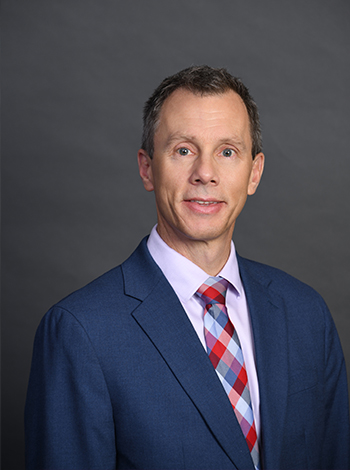
Bio
I received my Ph.D. in Clinical Psychology at Kent State University in 1997, completed an internship at the University of Minnesota in 1997, and a post-doctoral fellowship in Pediatric Neuropsychology at the University of Minnesota in 1999. I am a Professor in the Department of Psychiatry & Behavioral Sciences and the Director of Child and Adolescent Mental Health Research. I am also an adjunct faculty member in the Department of Psychology.
For more than 20 years, I have run a Child and Adolescent Neuropsychology Clinic in the Department of Psychiatry & Behavioral Sciences where I see patients with a variety of neurodevelopmental, neurological, and psychiatric conditions. I also train graduate students and clinical psychology interns in the practice of child and adolescent neuropsychology. My clinical interests include neuropsychological evaluation of children with neurological and psychiatric disorders, consultation with schools regarding academic programming and modifications, and clinical training.
My primary research interest is in Fetal Alcohol Spectrum Disorders (FASD). I direct the University's FASD Research Program. I conduct advanced neuroimaging studies in FASD in conjunction with the University's Laboratory for Neuropsychiatric Imaging. My research group is part of the Collaborative Initiative on Fetal Alcohol Spectrum Disorders (CIFASD) and is involved in CIFASD's ongoing multi-site imaging, neurobehavioral, genetic, facial dysmorphology, and intervention projects. In addition, I conduct randomized controlled trials of nutritional supplementation in children with FASD - the goal of which is to develop a treatment for the neurodevelopmental aspects of the disorder. I am also conducting a trial of cognitive training and transcranial direct current stimulation in children and adolescents with FASD.
I also have a general interest in psychometrics and have been involved in the development of several neuropsychological instruments, including infant development and visual-perceptual processing measures. I am a member of the International Neuropsychological Society, Research Society on Alcoholism, and the past President of the Fetal Alcohol Spectrum Disorders Study Group (FASDSG). I serve as a reviewer for a number of journals including JINS: the Journal of the International Neuropsychological Society, Child Neuropsychology, Pediatric Psychology, ACER: Alcoholism, Clinical and Experimental Research, Neurotoxicology and Teratology, and Development and Psychopathology, among others. I am also a longstanding member of our Clinical Psychology internship's Training Committee.
Expertise
- Neuropsychology (especially child and adolescent)
- Cognitive measurement
- MRI
- Clinical trials
- Study design
- Data analysis
Administrative Assistant
(for academic support only)
Molly Jokimaki
jokim004@umn.edu
In the Media
- 2023: Dr. Wozniak and his lab are spotlighted in this article titled, “Research team working on fetal alcohol syndrome disorders treatment, prevention.
- 2022: Featured in this piece titled, “Faculty member finds that working in an area that helps kids with FASDs is ‘pretty powerful’”.
- 2020: Dr. Wozniak’s research on Choline Supplementation as a Neurodevelopmental Intervention in Fetal Alcohol Spectrum Disorders (FASD) was featured in an article titled, “'U' Announces Breakthrough Study On Treating Fetal Alcohol Spectrum Disorders”.